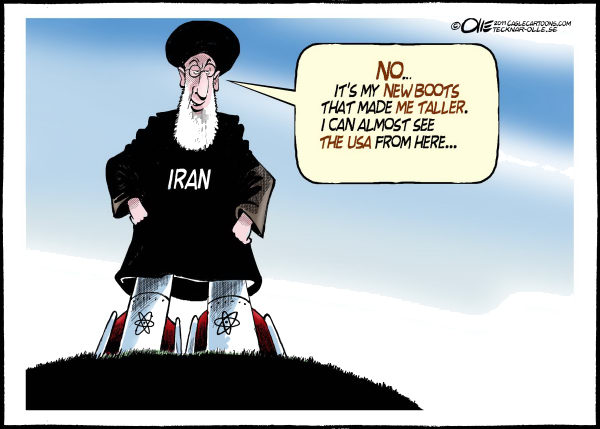
At the outset of talks in a sprawling sports stadium, Pompeo and Netanyahu both reflected on the significance of a Wednesday night dinner for representatives of more than 60 countries attending the conference, including Arab countries. Jordan and Egypt already have peace treaties with Israel. Several other Arab states, particularly those around the Persian Gulf, do not readily advertise to their citizens the friendly diplomacy that already exists with Israel.
Iran, which was not invited to the conference, where it will be the subject of much debate and disparagement, has changed that calculation.
"Yesterday was a historical turning point," Netanyahu told reporters. "In a room of some 60 foreign ministers, the Israeli prime minister and foreign ministers of leading Arab countries stood together, and spoke with unusual force, clarity and unity against a common threat of the Iranian state."
The Trump administration has sought with little success to rebut the perception that the conference is aimed at vilifying Iran, which this week marked the 40th anniversary of the Islamic revolution that overthrew the U.S.-backed shah of Iran. U.S. officials have stressed that the session covers a range of topics, including the humanitarian crises in Syria and Yemen. Netanyahu, however, has minced no words, telling reporters in Israel, "The focus of the conference is Iran."
Pompeo said the two are intrinsically linked.
Standing next to Netanyahu, Pompeo said that "pushing back" against Iran is essential to tackling other problems in the region.
"You can't achieve peace and stability in the Middle East without confronting Iran," Pompeo said. "It's just not possible."
In his opening remarks, Pompeo listed a cross-section of issues that the administration usually accuses Iran of largely creating or at least heightening.
"We need action beyond today," he said. "Syria. Yemen. Proliferation. The peace process. Terrorism. Iran. Cybersecurity. Humanitarian crises. None of the region's challenges will solve themselves. We must work together for security in the region. No country can afford to remain on the sidelines."
Pompeo has consistently made clear that all conversations about instability and threats in the Middle East end at Tehran's doorstep.
"This gathering is certainly about Middle East peace and stability," he told PBS NewsHour. "You can't talk about that without talking about the threat from the Islamic Republic of Iran, whether it's Hezbollah, Hamas, the Houthis - I call them the three H's - whether it's their work against the Iraqi government, trying to harm the independence and sovereignty of Iraq, whether it's what they're doing in Syria today."
Vice President Mike Pence and Netanyahu also will meet on the sidelines of the session today, and they plan to tour a memorial to the 1943 Warsaw Ghetto uprising.
Major Arab states of the Persian Gulf are attending, and the Trump administration plans to highlight warming relations between some gulf states and Israel.
Ahead of the session, Trump administration officials said the Israeli-Palestinian conflict would be one topic, but not the focus. President Donald Trump's long-planned peace plan is expected within months, although it has been delayed repeatedly. Jared Kushner, Trump's adviser and son-in-law, attended the session with Pence and was scheduled to give a talk on the "deal of a century" peace plan he has been working on for almost two years.
Iranian Foreign Minister Mohammad Javad Zarif has called the two-day meeting a "desperate anti-Iran circus" and has kept up a steady stream of tweets mocking it in English.
Every weekday JewishWorldReview.com publishes what many in the media and Washington consider "must-reading". Sign up for the daily JWR update. It's free. Just click here.
(COMMENT, BELOW)


 Contact The Editor
Contact The Editor
 Articles By This Author
Articles By This Author